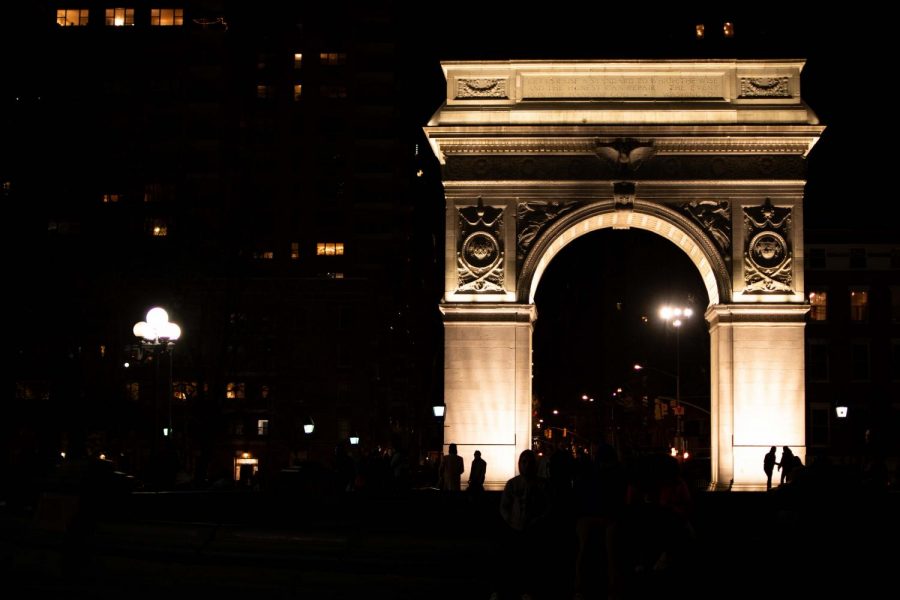“Some members” of the NYU community have been affected by the Trump administration’s student visa revocations and crackdown on immigration, President Linda Mills and Provost Georgina Dopico said in a universitywide email sent around 8:15 p.m. Tuesday.
In the memo, Mills and Dopico said the Office of Global Services has provided “all affected individuals” with “information and resources,” and that it will “reach out to them immediately.” They said that they did not provide specific information due to “privacy laws and policies.”
“The university is continuing to monitor the situation closely,” the memo read. “Please note that if you have not heard from OGS, it means the university is unaware of any changes to your immigration status.”
An NYU spokesperson did not immediately respond to an inquiry regarding the number of students affected.
Mills and Dopico directed students and faculty with immediate concerns to OGS hotlines, and said that school deans will organize drop-in hours to offer additional support over the next several days. They also advised community members to reach out to NYU’s Wellness Exchange Hotline and review the university’s protocols on immigration enforcement — which state that NYU will not disclose information that identifies students and faculty to immigration authorities without a search warrant, despite the university having said that it would “comply with the law.”
Last month, an adjunct assistant professor at the Robert F. Wagner Graduate School of Public Service and graduate student at Columbia University fled to Canada after her student visa was revoked. The professor, Ranjani Srinivasan, was named in a recent complaint claiming that federal crackdowns on student visas violate the First Amendment, which was filed by chapters of the American Association of University Professors at NYU, Harvard University and Rutgers University.
Srinivasan was named alongside at least four other NYU affiliates on a list published by Zionist group Betar US, which has since been removed from the organization’s website. The group claimed it submitted the list to the Department of Homeland Security, Secretary of State and U.S. Immigrations and Customs Enforcement in January, and credits itself for the detainments of Columbia graduate Mahmoud Khalil and Tufts student Rümeysa Öztürk — both of whom were also on the list.
In an interview with WSN, CAS professor and NYU AAUP member Sara Pursley said that concerns regarding international students had circulated the university community for months and ramped up over the past few days. She said the AAUP had been trying to schedule meetings with Mills and other administrators since January, requesting that the university assert its commitment to protecting international students, but that they had been unsuccessful.
Pursley criticized Mills’ email for not expressing solidarity with the students affected. She said its “neutral tone” reflected “extremely poorly” on Mills’ leadership and failure to condemn the targeting of the university’s noncitizen students and faculty.
“Some students don’t even understand from reading this that visas were revoked, so it’s very strange language, first of all,” Pursley said. “It’s fairly safe to presume that the students whose visas were revoked are being punished for their pro-Palestine speech and activism, or are being targeted for their Muslim, Arab or other Middle Eastern identities.”
Jonah Inserra, a third-year Ph.D. student and representative for NYU’s graduate student union, said union members had also been reaching out to the OGS to confirm the university had been regularly checking the student visa database for status updates. Inserra said the union had not received any updates from NYU leadership.
The federal government claims it has terminated hundreds of students’ visas over the last few weeks. Several of the most publicized revocations have taken place at other major universities including Harvard, Columbia and Johns Hopkins University, that have been subject to intense criticism and hundreds of millions in funding cuts under the Trump administration.
In a statement, the Department of State redirected WSN to a Tuesday press briefing where spokesperson Tammy Bruce said the department “revokes visas every day” and will “continue to do so.” Bruce said they do not disclose case-specific information or statistics due to “continuing fluidity of the situation.”
In most cases, students whose visas have been revoked received email notifications or text messages notifying them that their status had changed. While the State Department has reportedly issued many of the terminations in retaliation against students’ involvement in pro-Palestinian protests on campus, some have been attributed to other minor offenses such as traffic violations.
NYU hosts more international students than any other U.S. university. In 2017, NYU joined a legal effort against President Donald Trump’s travel ban, arguing that it jeopardizes the university’s academic success. In its statement of interest, the university said that inhibiting the entry of international students and faculty “improperly compromises the diversity that is central to NYU’s identity.”
Since Trump took office, NYU has faced backlash for not explicitly condemning federal immigration crackdowns. In February, over 1,000 students signed a petition calling for ICE to be removed from an NYU Law career fair, and dozens of students and faculty recently circulated a petition calling for the university to bolster its protections for international students.
“Because it is a very tense and sensitive time right now with the recent administration, it is very important to be intentional about the communication,” Student Government Assembly Chair Angela Chou said in an interview with WSN. “NYU wants to be cautious about what they publicly state, because they want to ensure that they are supporting students without escalating any of the ongoing issues.”
Contact Aashna Miharia, Dharma Niles and Yezen Saadah at [email protected].

























































































































































